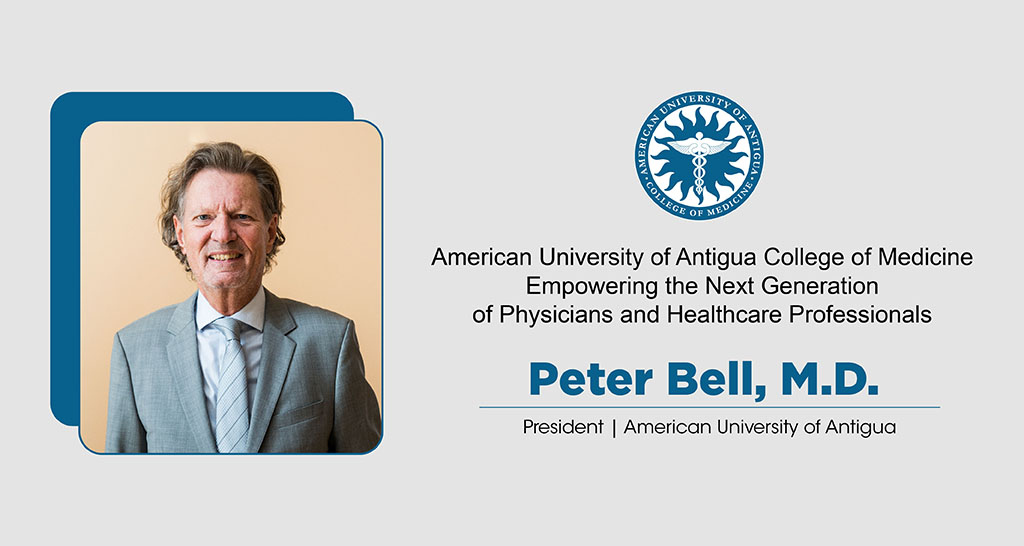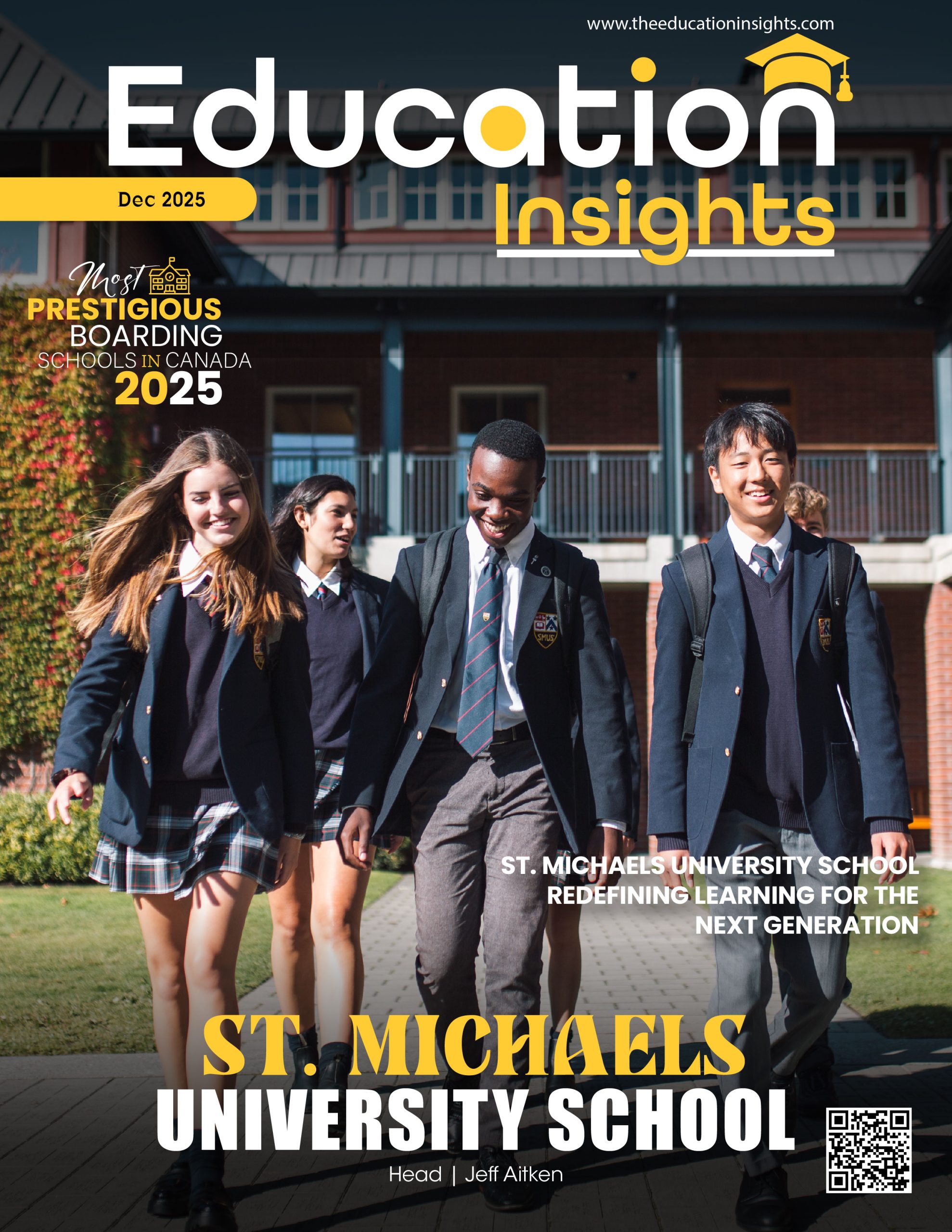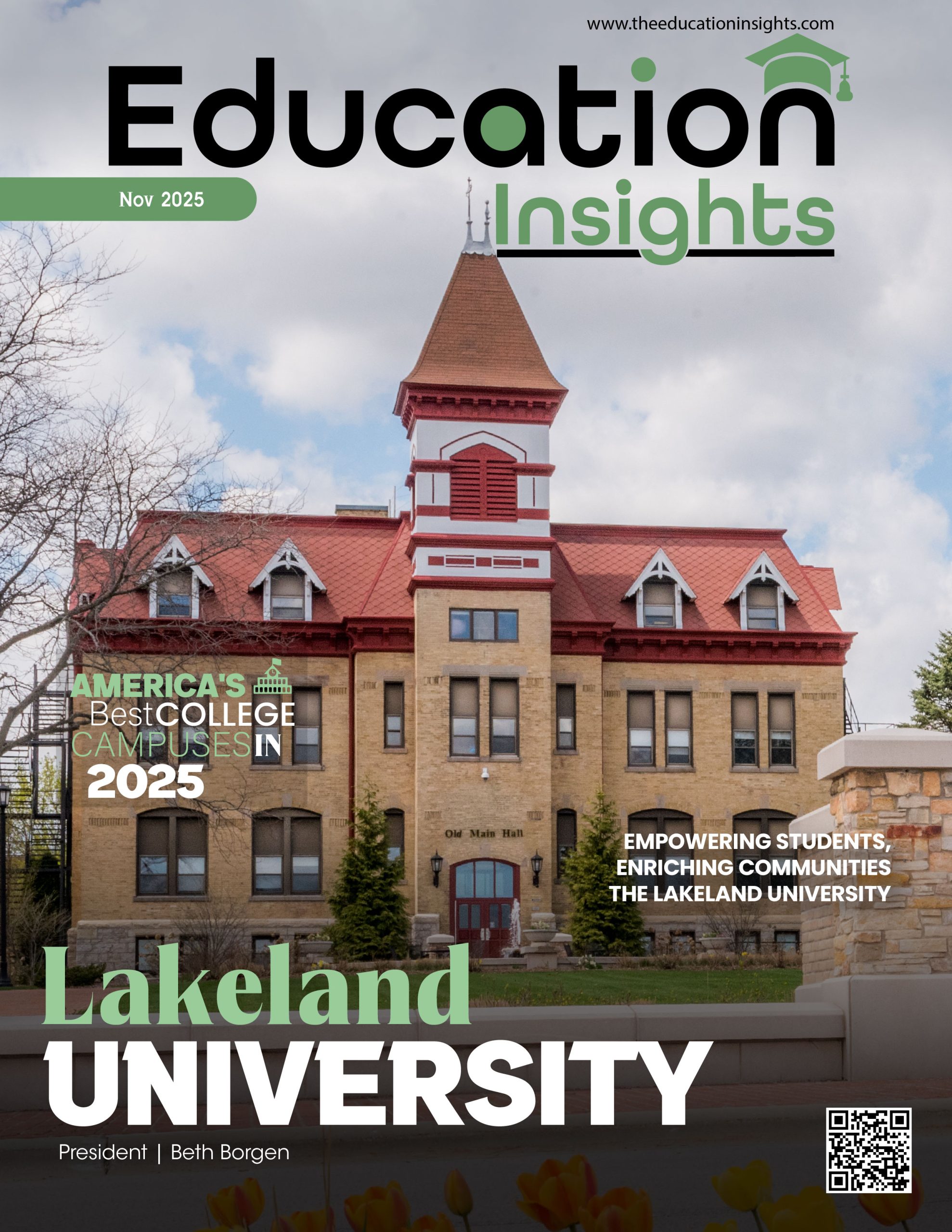American University of Antigua College of Medicine (AUA) is a well-known, fully accredited, international medical institution that is part of the Manipal Education and Medical Group. It is recognized as one of the best medical schools that provides a learner-centric education of the highest quality. Incorporated in 2004 with the commitment to support underserved communities and address the impending physician shortage, AUA takes its social responsibility to advance the field of medicine and respond to global healthcare needs very seriously.
A Remarkable Leader and Change Maker
Dr. Peter Bell is the President of American University of Antigua. His journey from a medical graduate in Germany to a renowned leader in medical education is a testament to his unwavering dedication and hard work. Dr. Bell began his medical career as a physician in the German Navy. During this time, he became a U.S. Naval flight surgeon and started his residency training in anesthesiologist. After completing his residency, he was appointed deputy chair of a large anaesthesiology and intensive care department.
Throughout his time in the Navy, and later in civilian life, Dr. Bell was involved in emergency medicine and flew helicopters and fixed-wing rescue missions. In 2001, Dr. Bell accepted the anesthesiologist and intensivist role for the government in Antigua. In 2004, he joined AUA. His experiences as a naval flight surgeon and involvement in medical rescue missions greatly influenced his leadership style and approach in academia. Training in the Navy, especially in naval aviation, provided a solid foundation for developing leadership skills-whether in a hospital or university setting.
Sharing his key inspiration behind joining American University of Antigua, Dr. Bell says, “Practicing in Antigua as a clinician, I was very interested to be a part of an academic environment in a rapidly evolving institution.”
Empowering Students to Navigate Global Complexities
AUA has a broad network of hospital affiliations across the U.S., Canada, and the UK. It collaborates with institutions like Florida International University (FIU) in the U.S. and University of Warwick Medical School in the UK to enhance medical training of its students.
The Global Health Track (GHT), which is conducted in collaboration with (FIU) Herbert Wertheim College of Medicine, is designed to broaden students’ understanding of healthcare from a global perspective. “The impact on our student body and faculty includes enhanced global awareness, improved cultural competence, and a stronger, more supportive community that reflects the global nature of medicine today,” explained Dr. Bell.
Global health content is increasingly integrated into AUA’s general curriculum, enhancing the student’s understanding of healthcare challenges in a global context. AUA not only prepares students to address the healthcare needs of their patient population but also actively engages in global healthcare research, focusing on the impact of climate change on individual and population health.
Overcoming Challenges Along the Way
Dr. Bell believes that one of the significant challenges in medical education is the North American system’s heavy emphasis on standardized tests to assess student and physician competence. When testing becomes the primary focus, it can sometimes shift attention away from the ultimate goal: developing compassionate, well-rounded physicians. This focus on test performance risks overshadowing the importance of fostering a deep understanding of medicine and cultivating the empathy and communication skills essential for patient care.
Notable Initiatives to Ensure Student Well-being and Success
otable Initiatives to Ensure Student Well-being and SuccessNew students participate in an extensive week-long orientation program to help them get familiar with each other. The Office of Student Affairs organizes non-academic activities such as yoga and hiking in addition to coordinating student clubs. Students can use AUA’s sports fields and fitness center. The wellness center houses the university clinic, which offers medical and mental support services. Academic support is available from faculty, including one-on-one tutoring from experts in the medical field, if needed; and students can also access a variety of academic coaching programs through the Education Enhancement Department.
Diversity and Inclusion at AUA
AUA promotes a diverse and inclusive academic environment, welcoming students and faculty from various backgrounds and partnering with institutions to support underrepresented populations in medicine. To achieve this, the team actively reaches out to colleges, including Historically Black Colleges and Universities (HBCUs).
“Our initiatives aim to increase diversity in medical education and address the predicted physician shortages by supporting students of color,” said Dr. Bell.
AUA is also a participating clinical site for a U.S. ACGME-accredited residency program and collaborates with Charles R. Drew University and other HBCUs to increase opportunities for underrepresented minorities in medicine.
Integrating AI, Virtual Reality, and Innovation in Medicine
The faculty at AUA has established an AI committee to monitor the development of AI and evaluate its use in medical education. AUA has been at the forefront of embracing new technologies in education, as exemplified by the high-fidelity simulation lab and the recently introduced virtual reality ultrasound trainer.
This year, a group of esteemed AUA faculty has been awarded the Stephen Abrahamson Award for Innovation, one of the highest honors in the field of medical education, by the University of Southern California’s (USC) Department of Medical Education in recognition for their groundbreaking work in implementing artificial intelligence in the education of medical students and aspiring physicians.
The award acknowledges those who push the boundaries of traditional medical training, introduce innovative ideas and methodologies that enhance the learning experiences of medical students and professionals, and spotlight advances that improve simulation and educational strategies. This prestigious recognition is a testament to AUA faculty’s groundbreaking work in employing Artificial Intelligence (AI) to revolutionize the education of future physicians.
The Future Outlook: Curriculum, Technology, and Global Partnerships
The integration of global health topics into mainstream curricula is poised for continued growth, along with a focus on social determinants of health and climate change. Advancements in AI and AI-powered simulations, including virtual reality, are set to revolutionize medical education, making it more immersive, globally connected, and future-ready. AUA stands at the forefront of these transformations, demonstrating a commitment to leading in the evolving landscape of medical education.










